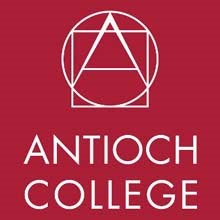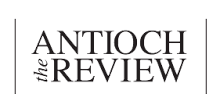On Saturday, January 23, 2010, Antioch College’s Morgan Fellows will host the second in a series of monthly symposia focusing on issues in higher education and society. The topic of this event will be “Native American Identity and Representation,” and will take place in the Herndon Gallery at Antioch College, One Morgan Place, Yellow Springs, Ohio, from 2:00 to 4:00 pm with a reception to follow.
“The identities of Native Americans are inherently linked to landscape, relatives, and language,” says Beverly Rodgers, Ph.D., one of four Arthur Morgan Fellows at Antioch College. Even when relatives have gone on, the land degraded, and language fallen into disuse, these elements continue to form the context of identity for most Native Peoples. In representing these identities, indigenous writers, artists, and cultural workers face the dual necessities of educating a broader public to see past deeply rooted stereotypes of Native Peoples and creating awareness of the variety of Native experiences and realities. This has also meant a heightened interest in mixed blood, hybrid, and multiple identities, and in the increasingly common urbanized Native realities.
Panelists:
William S. Penn, a member of the Nez Perce Nation, is one of the most acclaimed contemporary Native American writers. The prizewinning author and editor of numerous books, among them two novels of mixed-blood life, The Absence of Angels and Killing Time with Strangers, Penn's second novel won the 2001 American Book Award for Literary Merit. He has also produced the influential collections All My Sins Are Relatives; As We Are Now: Mixblood Essays on Race and Identity; Feathering Custer; and the anthology The Telling of the World: Native American Stories and Art. William Penn teaches creative writing, the oral tradition, and literature of the Americas in the English Department and the American Indian Studies Program at Michigan State University.
Daryl Baldwin, a citizen of the Miami Tribe of Oklahoma, directs The Myaamia Project at Miami University of Ohio. The Project is a joint research venture between the Miami Tribe and Miami University, charged with the study and support of the history, culture and language of the Miami Nation, whose ancestral lands spanned present-day Illinois, Indiana, southwest Michigan, and Ohio. Baldwin's forefathers were active in the affairs of the Miami people for several centuries, and he continues this tribal work via the wide variety of language and cultural revitalization programming he manages through the Myaamia Project. Daryl Baldwin holds a Master's Degree in North American Linguistics from the University of Montana.
Beverly E. Rodgers, Miami by ancestry and culture, is currently one of four Arthur Morgan Fellows at Antioch College. She has also served Antioch College as an Associate Professor of Anthropology, as an Assistant Professor of Co-operative Education, and as the Director of the Coretta Scott King Center for Cultural and Intellectual Freedom. Rodgers holds a Ph.D. from The Ohio State University in Cultural Anthropology and specializes in the study of the indigenous peoples of the Great Lakes region. Her research is tribally-driven and focuses on issues relevant to the Miami Nation, including cultural identity and the protection and reclamation of Miami heritage. Dr. Rodgers is a Research Associate of the Glenn Black Laboratory of Archaeology at Indiana University and the Director of the Myaamia Foundation.
About the Arthur E. Morgan Fellows …..
Named in honor of Arthur E. Morgan, Antioch College President from 1920-1936, the Fellows are facilitating and coordinating a yearlong outreach program to alumni and friends of the College nationwide as the College develops both its program and curriculum. They will also present symposia on a wide variety of topics on the historic campus in Yellow Springs, Ohio. The current Morgan Fellows include Anne Bohlen M.A.; Jean Gregorek, Ph.D.; Beverly Rodgers, Ph.D.; Scott Warren, Ph.D.; and Director of Work Susan Eklund-Leen, Ph.D.
Subscribe to:
Post Comments (Atom)








1 comment:
Hi Virgil, Is this symposium open to the public by any chance?
Post a Comment